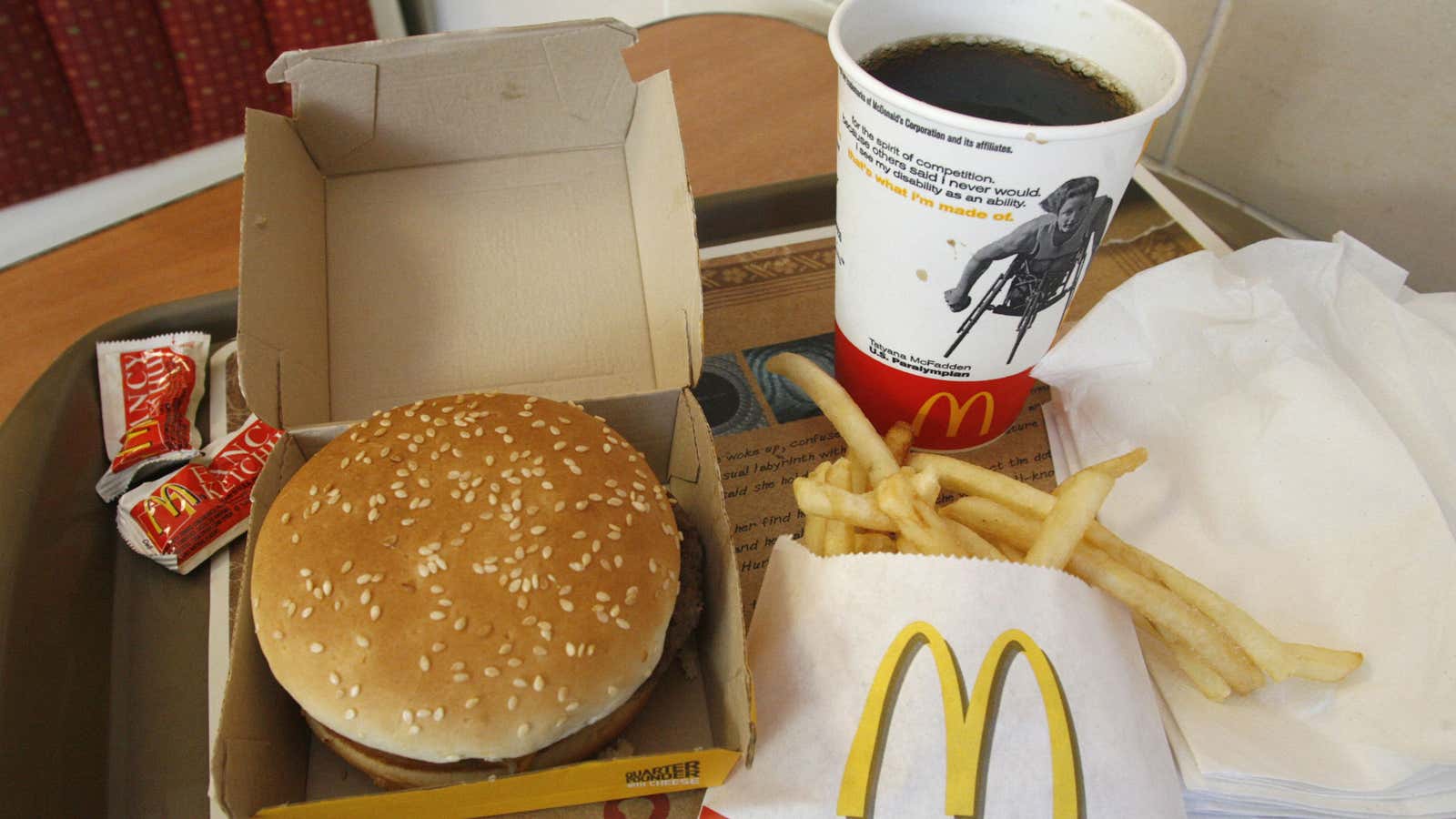The US government for the first time decided to research just how prevalent eating fast food is across its 50 states. The findings, released this week, are staggering.
One in every three American adults, about 37%, eats fast food on any given day—accounting for about 85 million people. The results were unveiled by the US Centers for Disease Control and Prevention and are based on a survey of 10,000 people over the course of four years.
Researchers found that as people get older they eat less fast food. They also discovered that the percentage of adults eating fast food got bigger with the more income they earn. Men are more likely to eat fast food at lunch than women, and women are more likely to eat it as a snack.
The researchers collected information between 2013 and 2017 via home interviews that were followed by physical exams in mobile exam centers. The data was supported by the National Health and Nutrition Examination Survey, a large-scale project designed to monitor the health and nutritional habits of the American population.
This data adds to a growing body of research that helps paint a better picture of health in America, where about 40% of adults are obese. Studies have shown that fast food represents the kind of high-calorie foods that are contributing to an overall crisis with overweight and obesity, both of which contribute to other health maladies such as Type 2 diabetes, heart disease, and stroke.
And it isn’t just impacting adult populations. There are 11 times as many obese kids in the world today as there were in 1975, according to a 2017 analysis of more than 2,400 research papers. In the US, specifically, the childhood obesity rate hovers around 19%, or 13.7 millions kids.
It’s an expensive problem, too, leading to health-care costs of more than $147 billion per year, according to the US government. With that in mind, the research bolsters the argument that policymakers should do more to incorporate policies leading to healthier eating. So far, that has played out by tightening school meals standards, implementing soda taxes, and mandating that chain restaurants, including fast-food joints such as McDonald’s and Burger King, begin clearly listing the number of calories their menu items contain.
